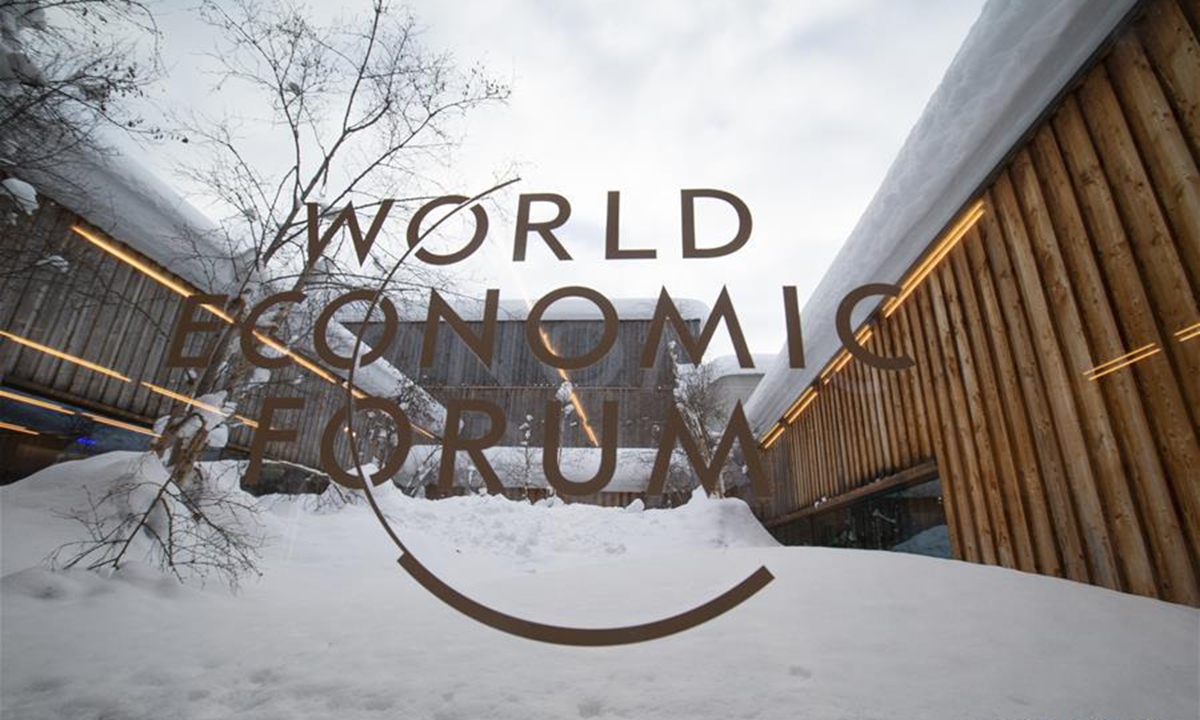
Photo taken on Jan. 21, 2019 shows the logo of the World Economic Forum (WEF) in Davos, Switzerland. The WEF Annual Meeting will kick off in Davos on Tuesday. (Xinhua/Xu Jinquan)
China has shown tactical resilience in maintaining flexible supply chains as the COVID-19 pandemic has prompted businesses and policymakers across the globe to rethink supply chain planning, an executive of the World Economic Forum (WEF) said on Thursday, urging increased cooperation for trade liberalization to address the ramifications of global supply chain disruptions.

Sean Doherty, head of International Trade and Investment and member of the Executive Committee of the WEF Photo: Courtesy of the World Economic Forum
"China is really quite resilient" in supply chain terms, as the country is diversified across its export markets and has multiple sources for its imports, Sean Doherty, head of International Trade and Investment and member of the Executive Committee of the WEF, told the Global Times in an interview via video link.
Additionally, "China has great infrastructure, which is a big asset, and it has some possibility for local experimentation among different regions to find out what solutions work best when challenges are encountered."
Resilience in supply chains really comes from diversity, the ability to learn from errors and to change course, Doherty said, stressing that "I think China has shown its tactical resilience."
In a fresh sign that the country has stayed agile and responsive in ensuring stable supply chains, Gao Feng, a spokesperson for the Chinese Ministry of Commerce, told a regular media briefing on Thursday that the ministry would smooth out sticking points in supply chains for the trade sector and ensure smooth freight transport domestically.
The spokesperson also vowed continued efforts to ease the pressure on international logistics, among broad-based measures to stabilize trade supply chains.
Almost all sectors have been hit by disrupted supply chains, according to Doherty, and those with more complicated value chains are more exposed to such disruptions, as they rely more on manufacturing, with partially finished goods being sent around the world.
As capacity has been pushed to the limit on large freight lanes amid shutdowns in different parts of the world, the sectors exposed to the more fragile parts of global supply chains would have to think harder through supply chain planning, the WEF executive said.
Supply chain disruptions have undoubtedly contributed to inflation. Also, they have led to some new investment in order to respond to the disruptions, Doherty reckoned.
The pandemic has resulted in a "heightened awareness among many businesses and policymakers of the value of having a real resilience mindset," he said, noting that the disruptions may spur growth in non-traditional sources and locations, particularly in developing countries.
When asked about workable fixes for insufficient cooperation in the haze of geopolitical tensions that could have amplified supply chain woes, Doherty urged a more decisive endeavor across the globe to push for trade liberalization so as to address some of the ramifications of supply chain disruptions.
"We [ought to] remove some of the tariffs that have been put in place and recognize that this is a way to fight against some of the inflation pressures we see," he said.
Furthermore, efforts could be in the pipeline to double down on practical responses available that can make trade easier, he continued.
"Even if we don't come to formal intergovernmental agreements on issues, there's still a lot that can be done in terms of reducing some of the paperwork and reducing the barriers in streamlining trade flows," the WEF executive remarked.
He called for ramped-up digitalization to cut through the paper-heavy process within trade financing chains or just getting goods to borders.
Describing China as a role model in facilitating trade domestically and a leading power in the WTO's investment facilitation discussions, Doherty was hoping for the country to share its experience with the rest of the world, developing countries in particular.
"If China can continue on that course… and help with the implementation of [such] reforms in its neighborhood, and then the other parts of the world. I think we'll be doing a great service" in enabling supply chain resilience globally, he said.





